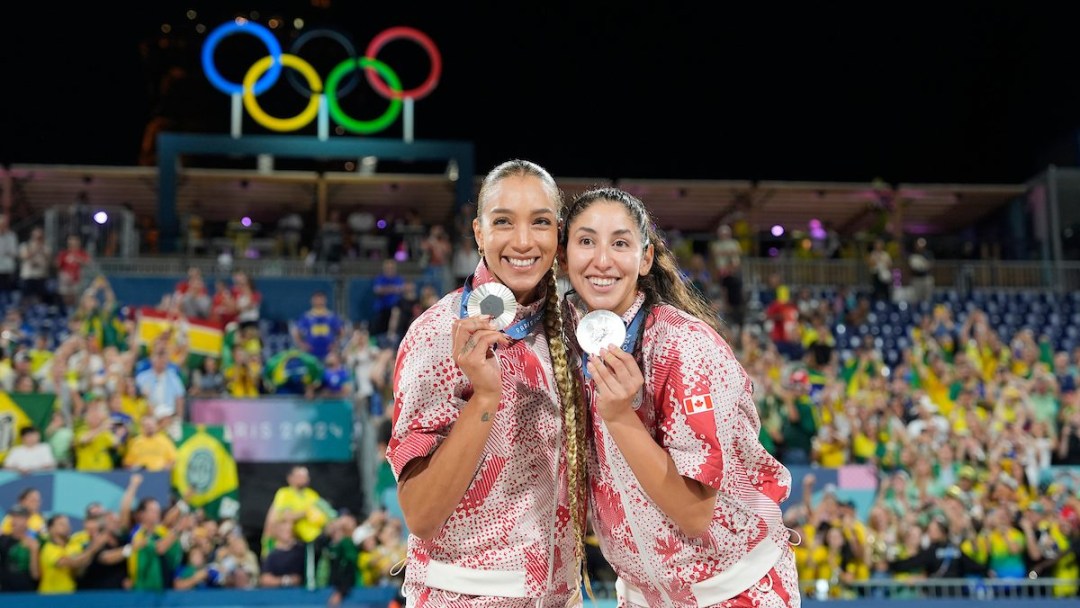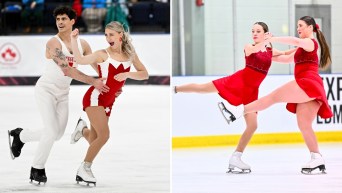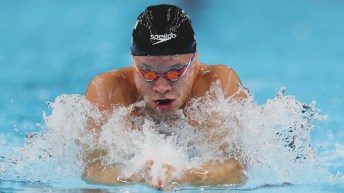A wild Olympic ride ends with silver for Humana-Paredes and Wilkerson
Paris isn’t known for its thrill rides, but Team Canada’s Melissa Humana-Paredes and Brandie Wilkerson opted to ride the roller coaster at Paris 2024.
Ups and downs. Wins and losses. Momentum gained and momentum lost. It’s been quite a ride for the duo in the Olympic women’s beach volleyball tournament. But, together, they stayed on for the ride – a ride that ended with a silver medal.
READ: Humana-Paredes and Wilkerson win beach volleyball silver at Paris 2024
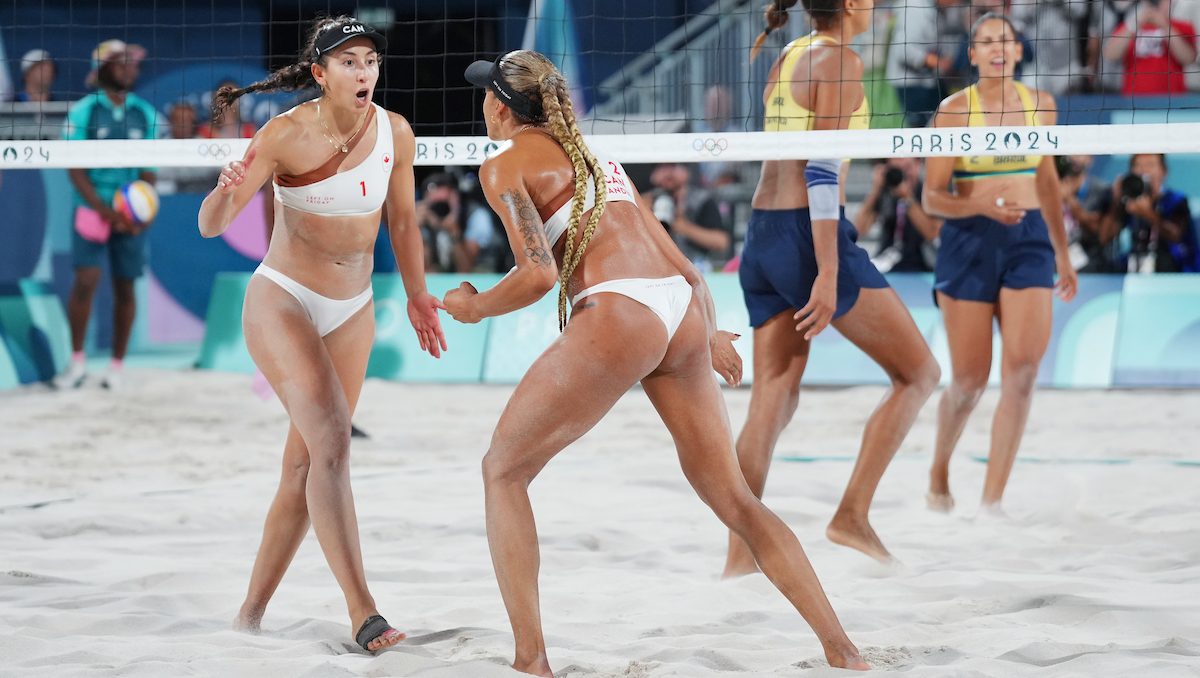
“Yeah, it was an emotional roller coaster and it really tested our team and it really forced us to have really deep, hard conversations early on,” said Humana-Paredes after the gold medal match.
“I think for me personally, it showed me that, I don’t have to be playing my best volleyball to make it to an Olympic final. I can do the best with what I had that day and I can rely on my team and my teammates to help me get there. I think that was really special to see. You can prepare as best you can and you can show up not feeling yourself and you can still find a way. And I think the belief that my teammate has and that my team has in what we’re able to accomplish, carried us all the way here. And there’s a lot to be said for that.”
Humana-Paredes and Wilkerson fell in three sets to Brazil’s Ana Patrícia Silva Ramos and Eduarda “Duda” Santos Lisboa – the top-ranked team in the world – in the gold medal match on Friday night below the Eiffel Tower. But it wasn’t that long ago it seemed like a long shot that the two would be playing for a medal of any colour.
The duo finished the preliminary phase of the tournament with one win and two losses, forcing them to play in a lucky loser match against Czechia just to stay alive. Canada won that match, pushing them into the next round as underdogs.
Canada pulled off a major upset in the round of 16, eliminating the No. 2 ranked team in the world – Kristen Nuss and Taryn Kloth of the United States – to qualify for the quarterfinals. Then, after defeating Spain in the quarters, Humana-Paredes and Wilkerson had to go up against Tanja Hueberli and Nina Brunner of Switzerland in the semifinals, a team that hadn’t dropped a single set in Paris.
After losing the first set, 21-14, Canada storm back to take a close second set, 22-20. Canada then took the first-to-15 third set, 15-12, to qualify for the gold medal match.
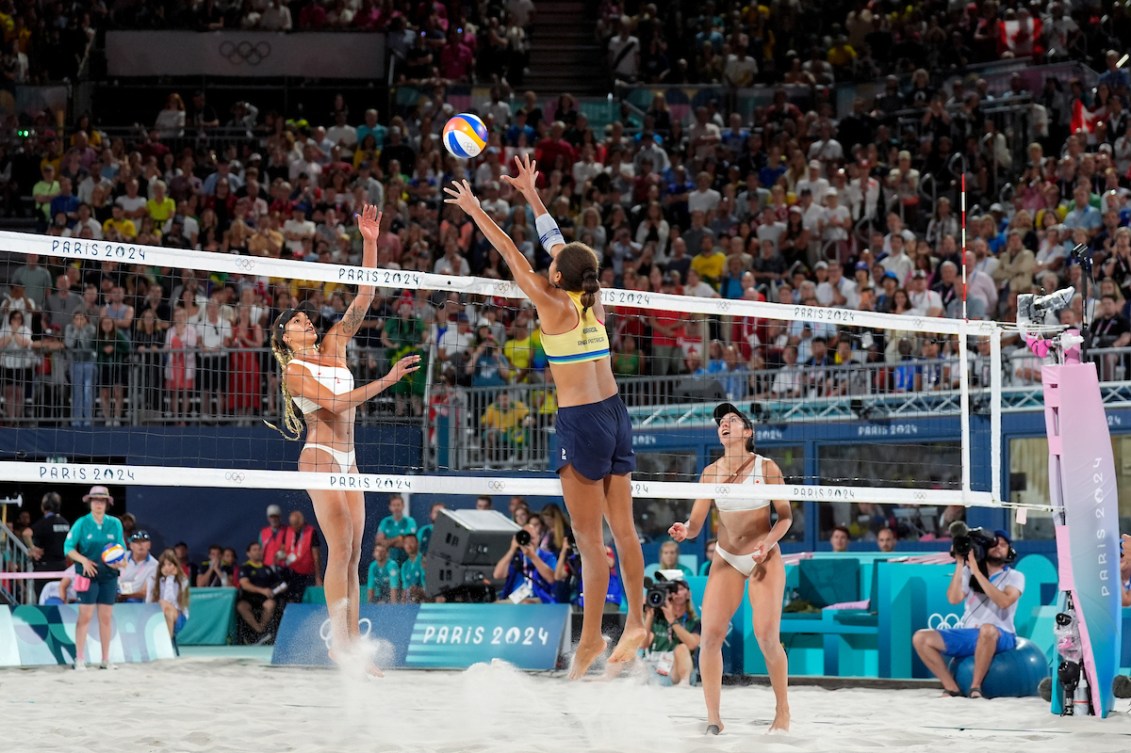
Humana-Paredes said that the team’s performance in Paris showed that records and numbers don’t mean anything once you step onto the sand.
“We showed a lot of people what’s possible and we showed a lot of people what just pure heart and grit and the intangibles of sport means. It doesn’t matter what your numbers are, what your data is, if you’re just going to fight to the very end. I think that’s what will help win your games.”
It was a historic moment for Canadian volleyball with this being the country’s first medal of any colour in women’s beach volleyball at an Olympic Games. John Child and Mark Heese won Canada’s only other beach volleyball medal – which came on the men’s side – when they won bronze at Atlanta 1996, the year the sport made its Olympic debut.
It’s fitting that Humana-Paredes is part of this moment. Her father, Hernan, coached Child and Heese to that bronze in Atlanta.
Both Humana-Paredes and Wilkerson have been on the Olympic stage before. At Tokyo 2020, Humana-Paredes partnered with Sarah Pavan and placed fifth while Wilkerson was with Heather Bansley and also placed fifth. Those results were previously Canada’s best-ever in women’s beach volleyball at an Olympic Games.
It wasn’t until October 2022 that Humana-Paredes and Wilkerson announced their partnership. The two made their debut as a pairing on the Beach Pro Tour in February 2023. They have found quick success together, reaching the podium at Elite 16 events, winning silver at the Santiago 2023 Pan American Games, and now grabbing an Olympic silver medal.
Even moments after winning silver, Wilkerson is excited about what the future holds for the duo.
“There’s no one else I would imagine sharing this with,” said Wilkerson. “It’s so fulfilling.
“The reason why we can hold our heads up high and proud – even after a loss – is that we set out to make history for Canada and we did that and we still have room to grow. And so that’s very exciting. So we’ll keep the positives, learn from the lessons and I’m very excited about our future.”
Wilkerson had a noteworthy moment in the gold medal match, receiving a yellow card after the two teams exchanged some heated words at the net. It was an intense, back-and-forth battle between the Canadians and Brazilians.
Play went back-and-forth early on in the opening set but Canada soon took control, jumping out to an 8-2 lead at one point. Canada grabbed a 13-8 advantage but, after a timeout, Brazil began to gain momentum. They tied things up at 17-17 and then took the lead.
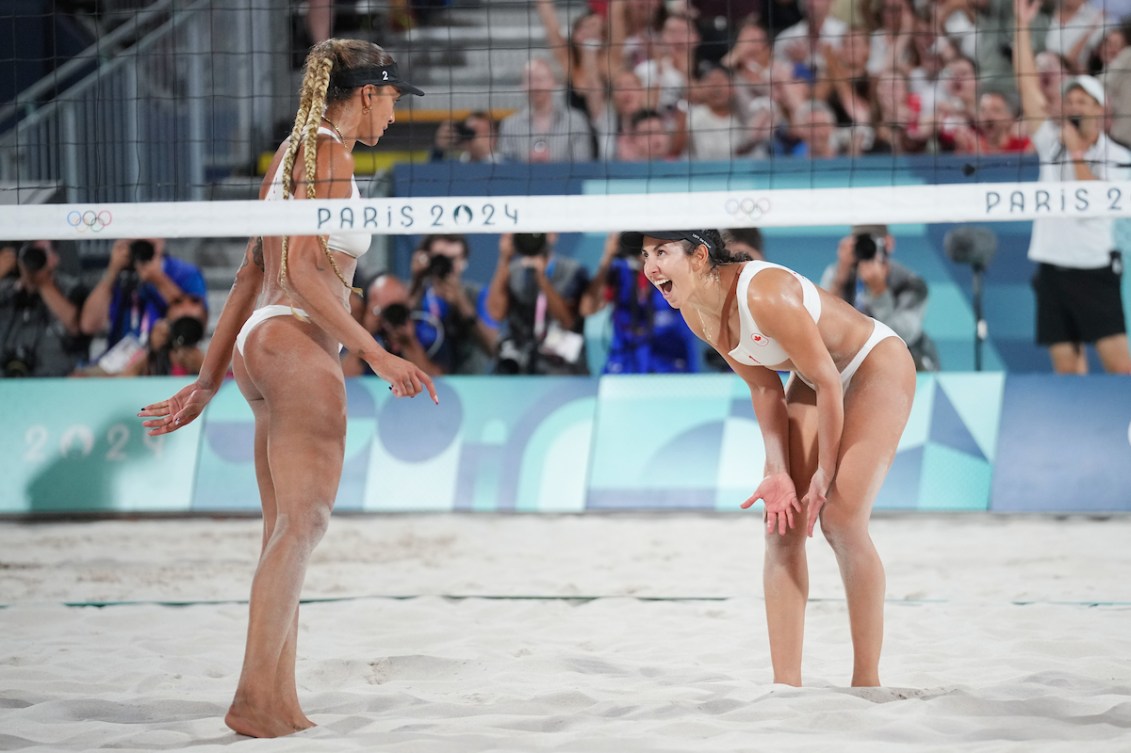
Brazil had three set points but Canada fought off each of them. The Canadians then had a couple of their own, but also couldn’t close things out. The advantage then shifted back to Brazil who, on their fourth set point, finally closed things out, 26-24.
The early parts of the second set were much like the first with play going back-and-forth. Canada then jumped out in front – but would hold on this time – and take the set in fairly quick work, winning 21-12.
In the first-to-15 deciding third set, Brazil jumped out to an early lead and maintained control, taking it 15-10 to secure the gold medal.
Wilkerson hopes this is a sign of things to come for Canadian volleyball.
“I hope Canada got to watch some high level volleyball and enjoy it. I mean, this is what it takes. There’s some great competitors out there in the world, but Canada is right there with everyone. So we should be proud of that and we’ll continue to show that we’ll end up on top next time.”

